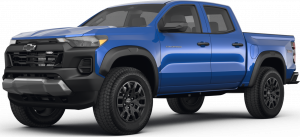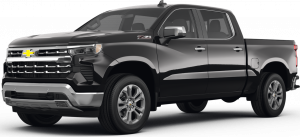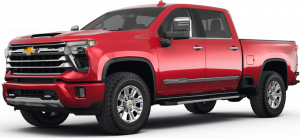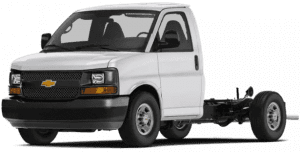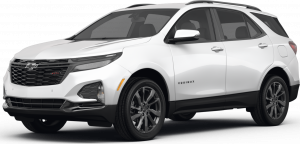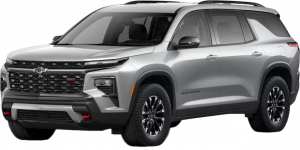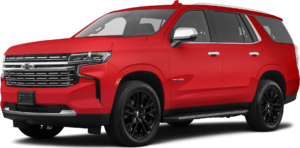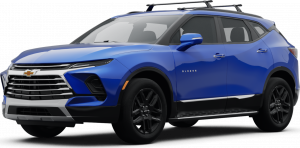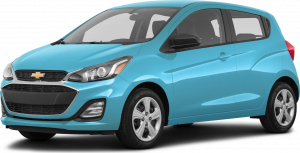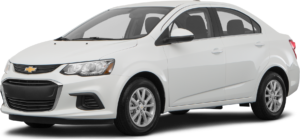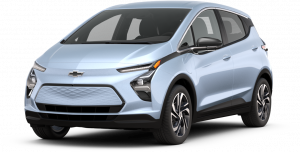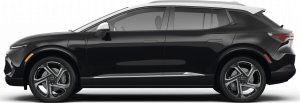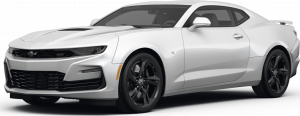Your Car Service Questions Answered: Sierra Chevrolet Experts Weigh In

The intricate landscape of car service can sometimes be a perplexing journey. We at Sierra Chevrolet in Monrovia understand the cavalcade of questions that swirl around routine car maintenance and its myriad aspects. With a deep-rooted expertise planted firmly in addressing the needs and concerns of our Monrovia drivers, we’ve curated this guide, stitching together answers to some of the frequently echoed queries about car service.
Car Service Frequently Asked Questions
General Car Service
What is a car service?
- A car service involves a series of maintenance procedures carried out at a set time interval or after the vehicle has traveled a certain distance. It can include various checks and replacements like oil change, filter replacements, tire checks, and brake inspections.
How often should I have my car serviced?
- Most manufacturers recommend having your car serviced every 12,000 miles or 12 months, whichever comes first, but it may vary based on the vehicle and driving conditions.
What are the most important car services?
- Oil and filter change, brake check and servicing, tire rotation and replacement, battery check, and fluid levels check (coolant, brake fluid, windshield washer, and transmission fluid).
How much does a car service cost?
- The cost can vary widely based on location, vehicle make and model, and the type of service needed. On average, it can range from $150 to $500.
What should I look for in a car service shop?
- Look for certifications, customer reviews, transparent pricing, and ensure they use quality parts and have experienced technicians.
How can I save money on car services?
- Regularly maintaining your vehicle to prevent major issues, using discounts and offers, or performing simple services (like oil changes) yourself can save money.
What is the difference between a synthetic oil change and a conventional oil change?
- Synthetic oil is artificially made, providing better performance and protection, while conventional oil is refined from crude oil and may not offer the same level of protection.
How often should I rotate my tires?
- Most manufacturers recommend rotating the tires every 6,000 to 8,000 miles.
How often should I replace my air filter?
- Generally, an air filter should be replaced every 12,000 to 15,000 miles.
How often should I have my brakes inspected?
- Ideally, your brakes should be inspected at least once a year or every 12,000 miles.
What are the signs that I need to have my car serviced?
- Signs include warning lights, strange noises, leaks, smoke, or noticeable performance issues.
Can I perform car services myself?
- Basic services like oil changes, air filter replacements, and tire rotations can be done by yourself if you have the right tools and knowledge.
What are some common car service scams?
- Some scams include unnecessary repairs, overcharging, fake replacements, or using subpar parts.
How can I avoid car service scams?
- Research the service center, ask for recommendations, get a second opinion for expensive repairs, and ask for old parts if replacements are claimed to be done.
Oil and Filters
What is the best type of oil for my car?
- Refer to your vehicle’s manual for manufacturer recommendations on oil type.
How often should I change my oil?
- Generally, you should change your oil every 3,000 to 7,500 miles, depending on the type of oil used and driving conditions.
What is a synthetic oil change?
- A synthetic oil change involves replacing the engine oil with synthetic oil, which often lasts longer and performs better under extreme conditions.
What is a conventional oil change?
- A conventional oil change involves replacing the engine oil with conventional oil, which is derived from crude oil.
Which type of oil change is better for my car?
- This can depend on your driving conditions and vehicle type. High-performance and high-mileage vehicles often benefit more from synthetic oils.
What is the difference between an oil change and a filter change?
- An oil change involves replacing old engine oil, while a filter change involves replacing the oil filter, which helps to remove impurities from the oil.
How often should I change my air filter?
- Typically, an air filter should be replaced every 12,000 to 15,000 miles.
How often should I change my cabin filter?
- A cabin air filter should be replaced approximately every 15,000 miles or at least once a year.
How often should I change my fuel filter?
- Most manufacturers recommend changing the fuel filter every 30,000 miles.
Can I change my oil and filters myself?
- Yes, with the right tools and knowledge, you can change your oil and filters.
Brakes and Tires
How often should I have my brakes inspected?
- Brakes should be inspected at least once a year or every 12,000 miles.
What are the signs that I need new brakes?
- Signs include squeaking, grinding noises, vibration while braking, and reduced braking effectiveness.
How often should I rotate my tires?
- As mentioned earlier, tires should be rotated every 6,000 to 8,000 miles.
How often should I replace my tires?
- Tires should be replaced every six years, or sooner depending on their wear and tear.
What is the best type of tire for my car?
- The best type depends on your driving conditions and vehicle type. Refer to your vehicle’s manual and consider factors like climate and typical driving surfaces.
Can I rotate and replace my tires myself?
- Yes, with the appropriate tools (like a jack and lug wrench), you can rotate and replace your tires.
Other Services
What is a tune-up?
- A tune-up is general maintenance that can include spark plug replacement, air filter replacement, fuel filter replacement, and various system checks to ensure optimal performance.
How often should I get a tune-up?
- Traditional tune-ups are often recommended every 30,000 miles, but modern vehicles may only require some of these services at longer intervals.
What is a wheel alignment?
- Wheel alignment adjusts the angles of the wheels so that they are perpendicular to the ground and parallel to each other, ensuring optimal tire wear and vehicle handling.
How often should I get a wheel alignment?
- It's typically recommended to get a wheel alignment every two to three years, or if you notice uneven tire wear or handling issues.
What is a coolant flush?
- A coolant flush involves removing old coolant from the radiator and engine cooling system and replacing it with fresh coolant.
How often should I get a coolant flush?
- Generally, a coolant flush should be performed every 30,000 miles or five years, but refer to your vehicle's manual for specific recommendations.
What is a transmission flush?
- A transmission flush involves removing old transmission fluid and replacing it with new fluid.
How often should I get a transmission flush?
- Most manufacturers recommend a transmission flush every 30,000 to 60,000 miles.
What is a differential fluid change?
- This service involves replacing the oil in your vehicle's differential, which is crucial for
The Fundamental Importance of Regular Car Servicing
One of the pervading queries we encounter revolves around the quintessential need for regular car service. There's an undeniable link between consistent car servicing and the vehicle's longevity, performance, and safety. Regular check-ups ensure that every cog in your vehicle’s machinery operates seamlessly, precluding potential mishaps and unexpected breakdowns. To delve deeper into this, our detailed article on Why Regular Car Service is Essential: Insights from Sierra Chevrolet stitches together the manifold reasons and benefits of consistent vehicle maintenance.
Unveiling the Mystery Behind Car Service Components
"What does a typical car service encompass?" is a question often posed by our fellow Monrovia drivers. A comprehensive service at Sierra Chevrolet addresses the various elements that contribute to your vehicle’s optimum performance. This includes, but is not limited to, oil and filter changes, brake checks, tire rotations, fluid top-ups, and visual inspections of vital components to eschew potential issues. For a structured breakdown of essential maintenance aspects, consider browsing through our Sierra Chevrolet's Essential Car Maintenance Checklist.
Pre-Trip Pit Stop: Preparing Your Vehicle for Lengthy Journeys
Embarking on road trips from Monrovia necessitates a thorough examination of your vehicle to ensure a hassle-free journey. Be it checking tire pressures, ensuring fluid levels are apt, or validating the health of your brakes - each element plays a crucial role in safeguarding your journey. A comprehensive guide on Preparing Your Chevrolet for a Road Trip: Tips from Sierra Chevrolet Monrovia awaits to arm you with pivotal insights for your next adventure.
In Wrapping Up
Your car, a steadfast companion, cradles you through journeys, both long and short. In return, it merely seeks your vigilance in ensuring it receives the tender care of regular services, maintaining its optimum health and vitality. We, at Sierra Chevrolet Monrovia, stand alongside you in this journey, ensuring every question finds its answer, every concern its resolution, weaving through the lanes of a smooth, hiccup-free driving experience.


